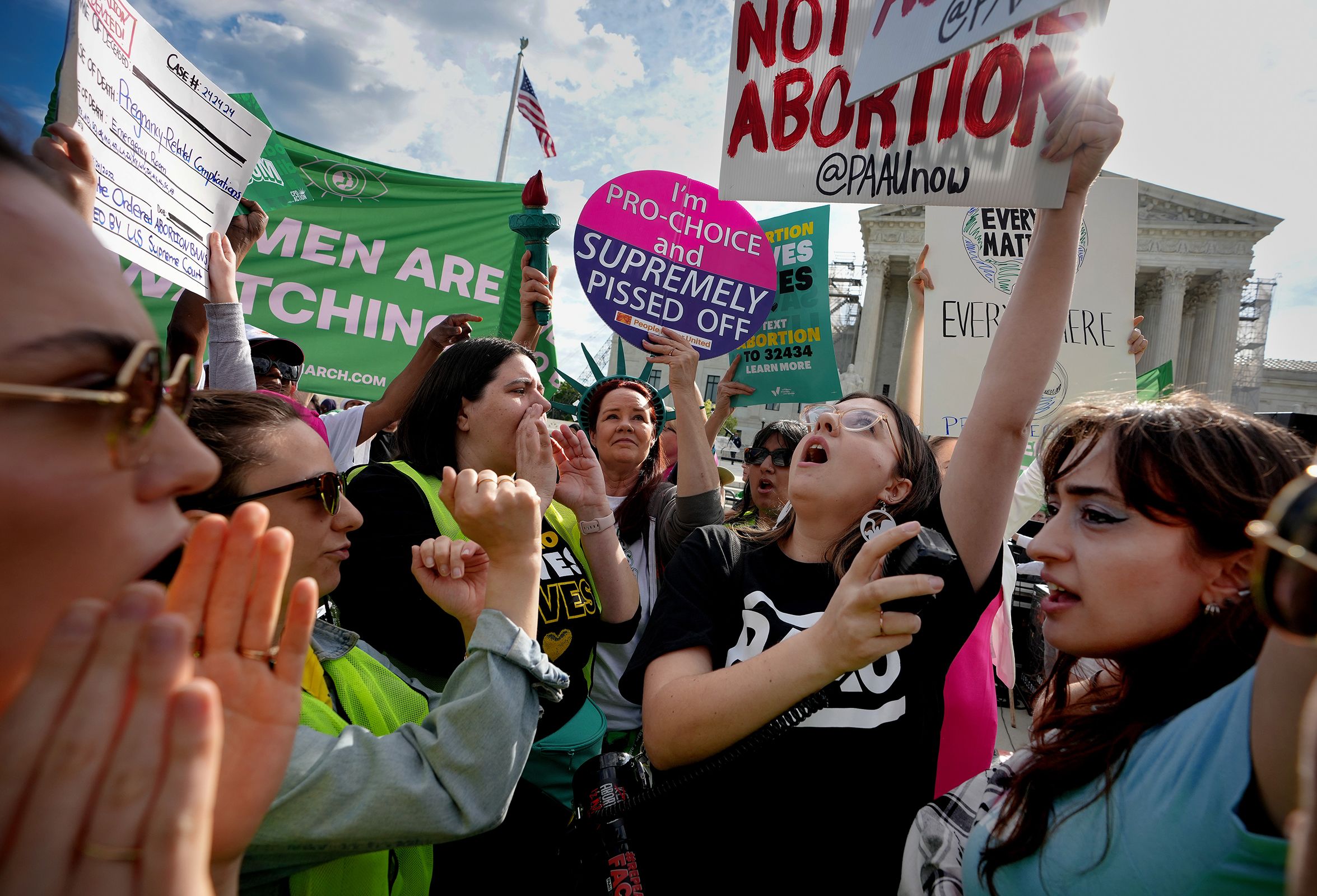Almost two years after the Supreme Court ruling that reversed Roe v. Wade, a significant majority of Americans continue to oppose the decision, a recent CNN poll conducted by SSRS reveals. However, amidst a presidential campaign where the primary candidates propose markedly contrasting solutions to the issue, the nation is less unified on the best approach to abortion laws.
The 2022 Supreme Court decision, which stated that women do not possess a federal constitutional right to an abortion, has not led to an equivalent level of support for federal action to safeguard abortion access. Approximately half of US adults, 49%, wish to see federal politicians strive to establish abortion access nationally, while 37% believe abortion laws should be a state matter, and 14% advocate for nationwide restrictions.
About 65% oppose the 2022 Supreme Court decision, Dobbs v. Jackson Women’s Health Organization, and 34% approve, figures that have remained virtually unchanged in CNN’s polling over the nearly two years since the ruling. Those who strongly disapprove of the decision continue to outnumber those who strongly approve by more than a 2-to-1 margin.
Supporters of the ruling largely believe federal politicians should not intervene on the issue: 59% say laws on abortion should be left up to the states, with 29% in favor of further restrictions to abortion access nationwide. New national restrictions are supported by roughly one-quarter of Republicans, White Evangelical Christians, and those who identify themselves as conservative.
The poll arrives following two years of primarily state-level disputes over abortion laws after the overturn of Roe – political battles with real implications for residents’ access to abortion in those states. Last month, the Arizona Supreme Court ruled to revive a Civil War-era abortion ban in the state, which the state’s House voted last week to repeal.
Overall, a 45% plurality of Americans believe that the laws governing abortion in their own state are currently appropriate, similar to a year ago, with 37% deeming them too restrictive and 17% too permissive. The share who view their state’s abortion laws as too restrictive rises to 43% in the states where abortion is currently legal with gestational limits of 6-18 weeks, and to 52% in the states where it is banned.
Abortion policy is also emerging as an election issue. President Joe Biden is making support for abortion rights a central theme of his presidential campaign. His Republican challenger, former President Donald Trump, has recently distanced himself from GOP-led pushes for a national ban, stating that abortion regulations should be left to the states.
While polling finds a clear public consensus against the decision to overturn Roe, it offers a less precise answer on the role the fight over abortion policy might play in voters’ decisions this year. Laws on the issue now differ starkly from state to state, and abortion is likely to be directly on the ballot in some states but not others.
About one-quarter of registered voters, 24%, say that they would only vote for a candidate who shares their views on abortion, with 55% saying they’d consider a candidate’s abortion position as one of many important factors when voting, and 21% saying they wouldn’t see abortion as a major issue.
Among all adults, Biden’s approval rating for handling abortion policy stands at 42%, similar to his overall job approval, the poll finds, although a 62% majority of those who want to see abortion access protected nationally approve.
The CNN poll was conducted by SSRS from April 18-23 among a random national sample of 1,212 adults drawn from a probability-based panel, including 967 registered voters. Surveys were either conducted online or by telephone with a live interviewer. Results among the full sample have a margin of sampling error of plus or minus 3.4 percentage points, for results among registered voters, it is plus or minus 3.8 points.
Contributors: Jennifer Agiesta and Ed Wu, CNN

